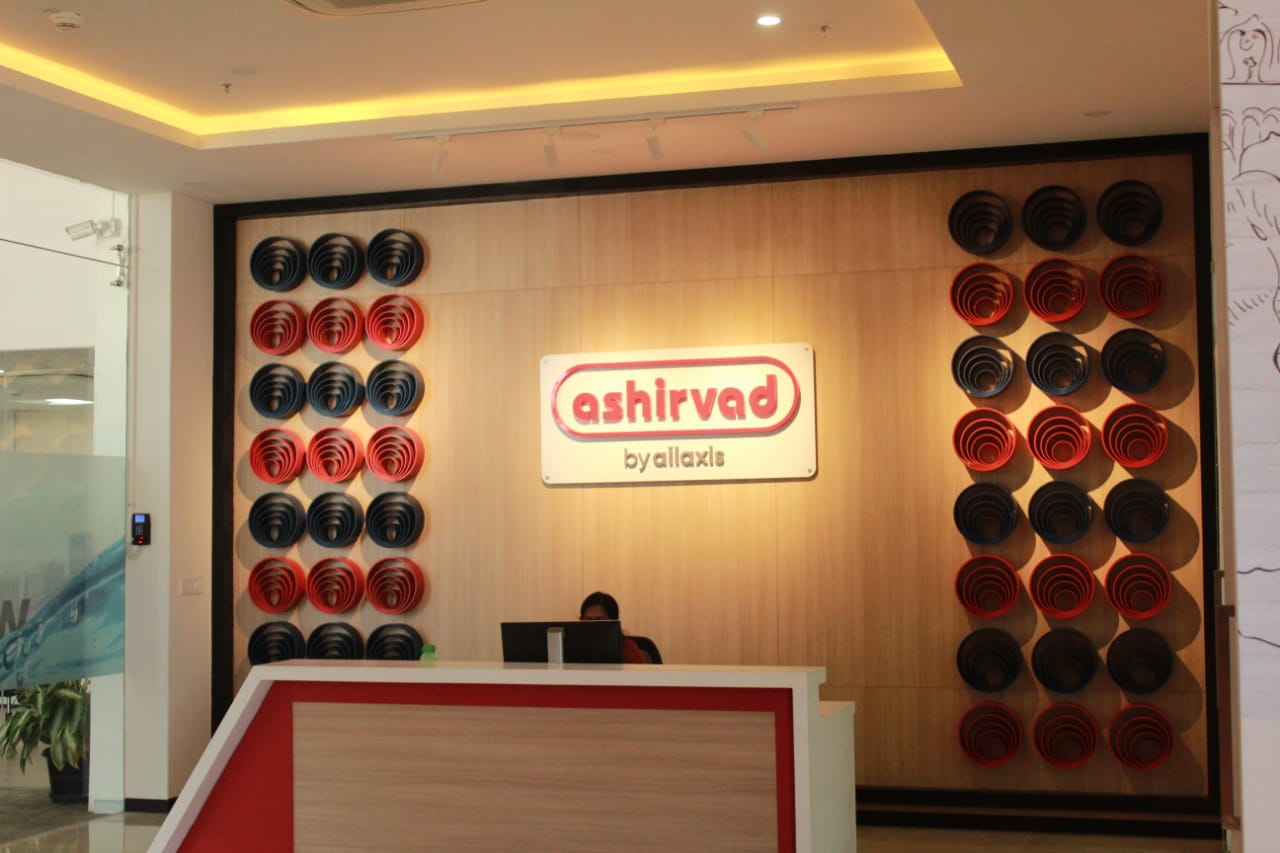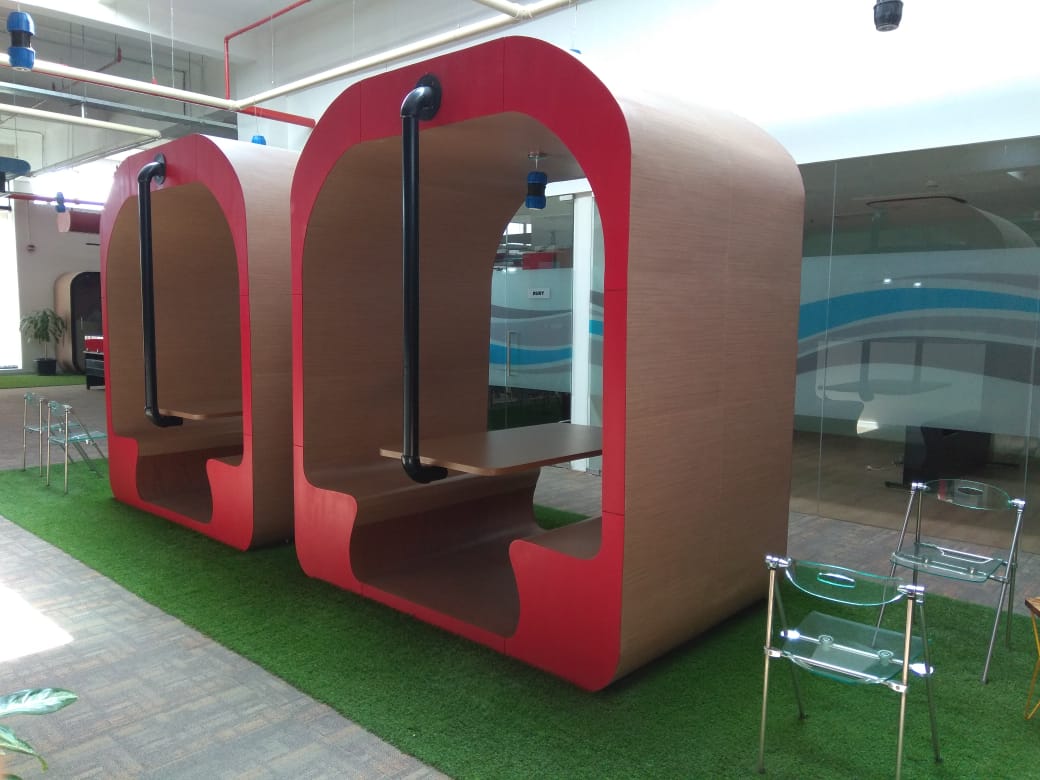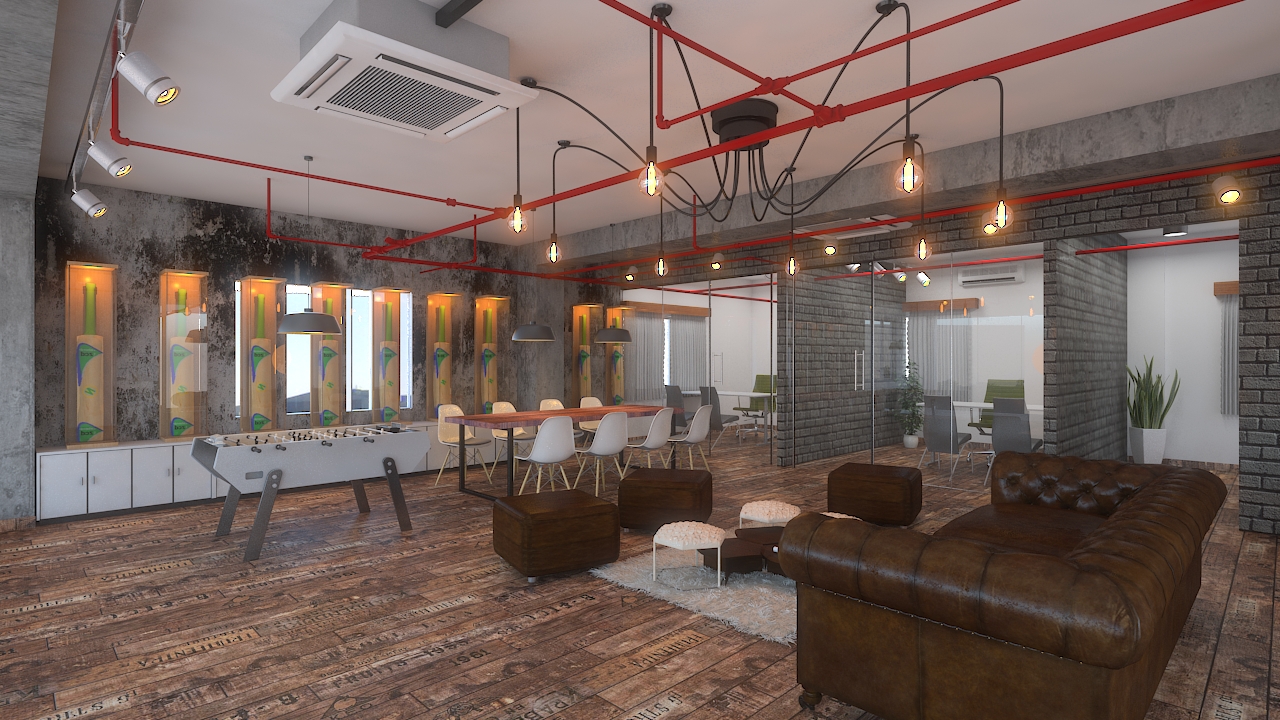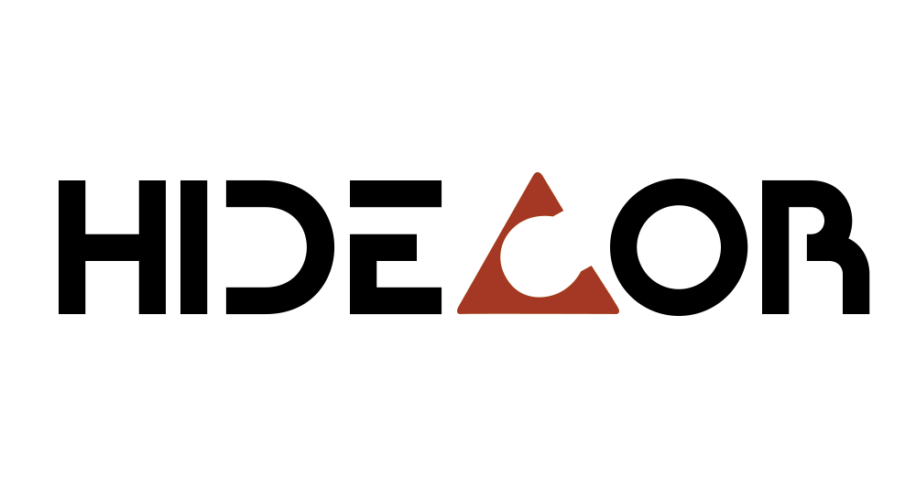Gone are the days when companies use to start their operation from run-down garages that were converted to makeshift office spaces. Now the initial days of a start-up are probably the most crucial period to determine the future.
One of the key reasons would be fierce competition. New ventures are emerging at an unprecedented speed and the struggle to surpass each other increases the possibility of the failure manifolds.
Hence, in this new era having a survival plan is as important as having the passion to convert the ideas to reality. Most entrepreneurs adopt tactics to built or be part of an ecosystem to be in constant traction with the different stakeholders like venture capitalists investors, mentors, advisors, developers, freelancers, etc.
Good office space can accommodate all these stakeholders and provide a favourable environment for the start-ups to thrive. The following design elements add value to a start-up space and differentiate them from the rest.
Brand-led Reception or Lobby Area
The first impression can be crucial for any company and more so for start-ups who have the need to talk about their products, services, core values, success stories to the investors, clients or even potential employees.
The reception area can be a microcosm that reflects the organization’s culture and help the visitors to build an impression of trustworthiness that eventually might translate to decision-making.

Developing a positive branding of the company can thus impact the conscious of a visitor and leave a long-lasting impression.
Flexible Design
For a start-up, things can change before one can bat their eyes. The demand to scale up and down in terms of manpower and operational capacity can be so rapid that most companies fail to manage things in their existing arrangements and relocate to a new place at a higher cost or even incur losses to exit the current establishment.
A well-designed office can avoid such a situation to a greater extent. Moveable walls and partitions can easily change a meeting room to workstations and vice versa.
Whether the objective is to accommodate more people or having a conference room for the investor to meet or schedule training – the modular design concept can quickly make it possible without incurring any additional cost.
Activity-Driven design
One key characteristic of working in the start-ups is for an individual to don many hats. In a single day, there can be schedules starting from a sales meeting to brainstorming with the internal team to having extensive calls with the investors.
Each of these activities would demand a different type of space design. But in reality, most companies do not have sprawling acres at disposal nor space can be changed instantly.

This has given the opportunity for an emerging trend of hot-desks where individuals can shift from one space to another to perform a different set of tasks.
Spaces that resemble soundproof phone booths to hipster café where you let your creative juices to flow can all fit under one roof to manage these dynamic needs.
Common Spaces
The demands of a start-up can be quite extensive – late work hours to weekend hauls – it can challenge the best minds in the business to keep calm and maintain productivity.

To improve employee engagement and reduce stress, open common spaces play a key role in an organization. Comfortable sofas and chairs or a café corner to grab a hot cuppa or some indoor fun like foosball or table tennis can immensely reduce stress and enhance the human experience.
Technology-efficient spaces
Connected sensors, smart devices and the high-speed Internet have redefined the way to work in recent times. The emergence of IoT in workspaces has not only brought efficiency but has been a great tool to reduce recurring expenses and save a lot of money in the long run.

Whether it maintaining the temperature or lighting or the building security, a technology-enabled workspace is a more comfortable place to be for everyone. For a startup where efficiency is the top necessity, incorporating technology to the workspace can drive automation and streamline processes.
Modern and technology-aided office design has the strength to engage the employees, enable them to focus and communicate to fuel up the next big innovation. While these are the mantra for any start-up’s success, even major corporates are adopting them as best practices to improve the efficiency of their workforce.
Hidecor has always kept the need for a business in mind and used creativity and past experiences to pivot some of the top office spaces that have set new benchmarks amongst the contemporaries. We continue to do so as our core mission and would be happy to share the possibilities to set up a new smart office or optimize the current space of any business.

